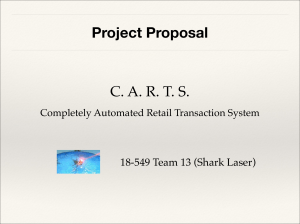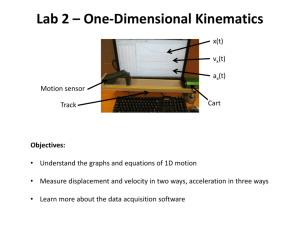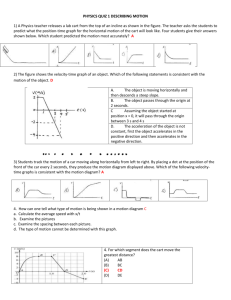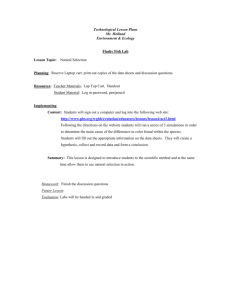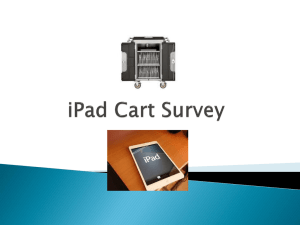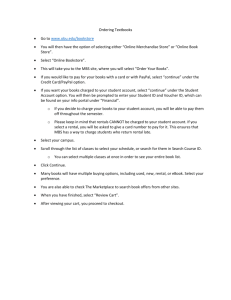Project Architecture C. A. R. T. S. 18-549 Team 13 (Shark Laser)
advertisement
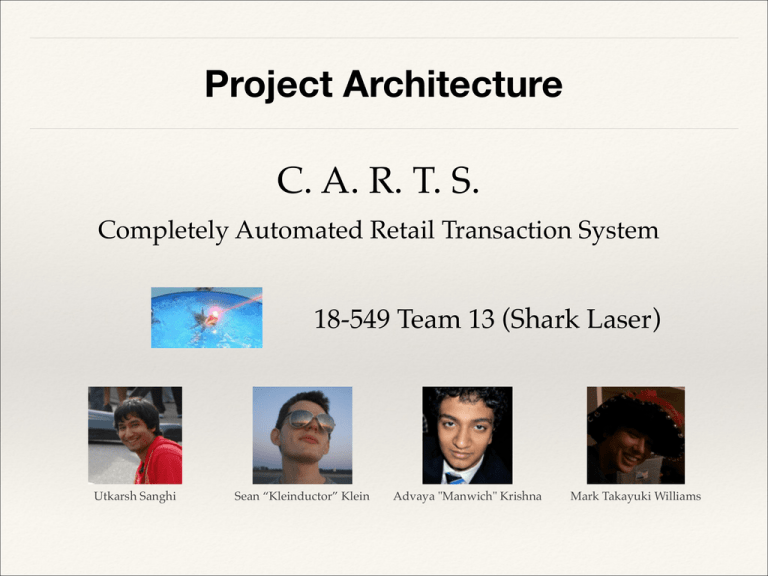
Project Architecture C. A. R. T. S. Completely Automated Retail Transaction System 18-549 Team 13 (Shark Laser) Utkarsh Sanghi Sean “Kleinductor” Klein Advaya "Manwich" Krishna Mark Takayuki Williams Status Update ❖ This project will expedite the checkout process in retail stores.! ! ❖ Current status - idea and methodology confirmed, waiting on parts to begin development C. A. R. T. S. Architecture - Step One Architecture - Step Two RFID Serial Architecture - Step Three Force Serial Architecture - Step Three USB $100 Use Cases - Power Startup! • Store manager activates Arduino and loads product with necessary inventory data! Shutdown! • Store manager deactivates Arduino - Arduino uses display and status LEDs to alert user to low power state! Idle! • After a while with no objects and no movement, display will shutdown to conserve power Use Cases - Normal Object Placed in Cart! • Object is sensed by weight impulse and increased weight on cart floor and RFID tag is read and is added to list (the screen will confirm a product was added)! Object Removed from Cart! • Object is sensed by lowered weight on cart floor followed by an RFID tag read and is removed from list (the screen will confirm a product was removed)! Abnormal Change to Cart! • Weight changes (either increased or decreased significantly) followed by a failed read or no read, the screen will let the user know to rescan Use Cases - Checkout Corrupted List! • Items are on the list that are not actual in store items or there is corruption over transmission, will call a clerk.! List Checkout! • If the items are successfully transmitted to the checkout stand, the screen will notify the user of success! No Checkout! • If the cart did not successfully checkout, it will not have the notification of success, store employees should not allow the user to leave the store Use Cases - Abnormal Overfilled Cart! It will display to the user that their cart is over filled and requires manual checkout! No Power! The store clerk will not see a valid checkout, the user will have to use manual checkout! Broken Sensor (weight/rfid)! The screen will display that the cart is out of order, the next time it checkouts, it will transmit that something is broken Risks and Mitigation Risks:! Mitigation:! ❖ RFID interference! ❖ ❖ Detecting loading vs. unloading items! Use multiple, low-range sensors! ❖ System failure could lead to incorrect checkout! Use weight sensor to verify RFID input data! ❖ Provide user feedback using status LEDs ❖ ❖ Metal/Liquid interference with RFID Plan of Action Plan A! • Fully working product with functional screen and ability to fully resolve all standard grocery store items! Plan B! • Limit list of function items to items that do not cause RFID interference (i.e. no metals/liquids)! Plan C! • Remove display and rely on status LEDs for feedback Questions?
